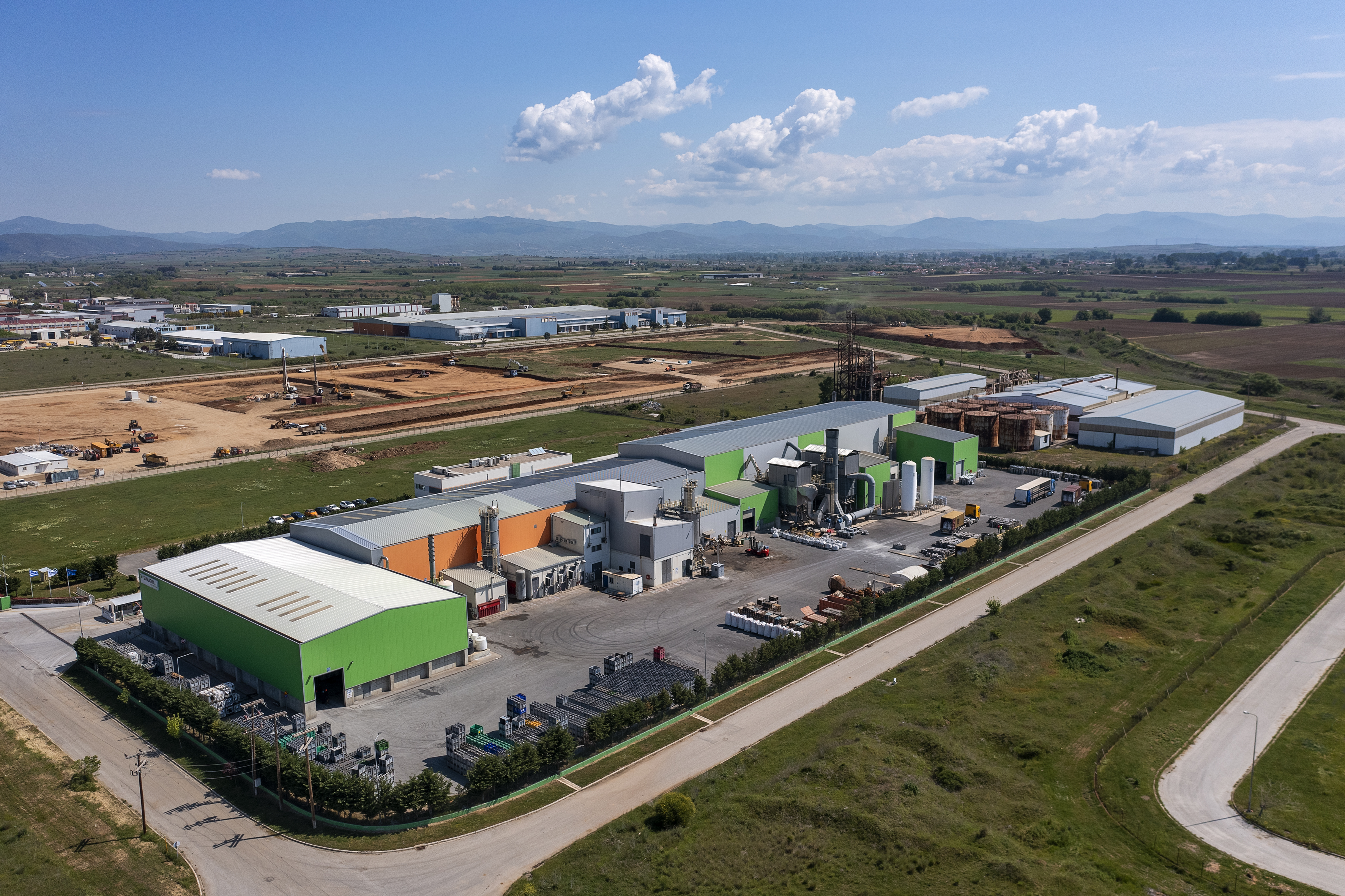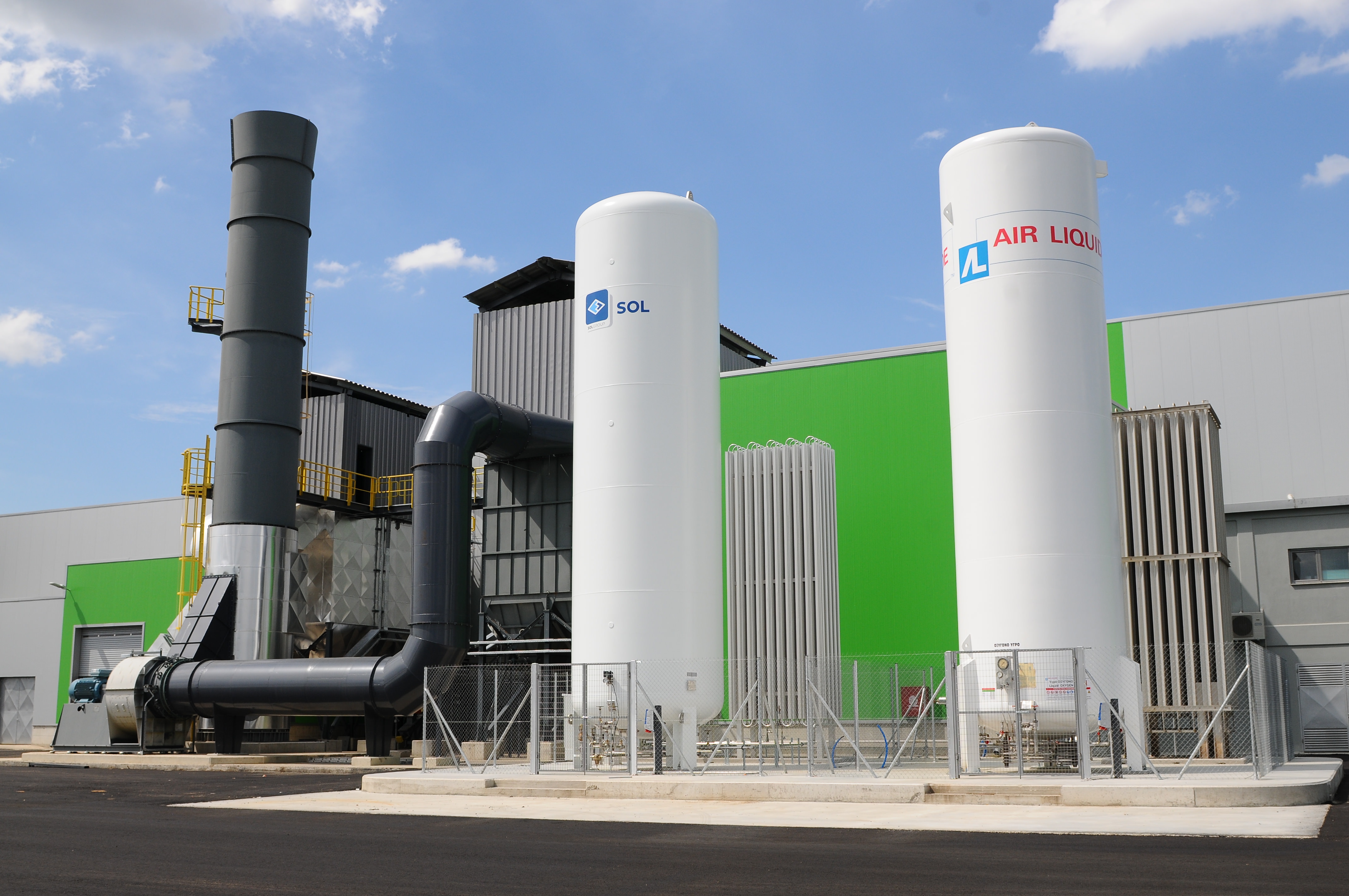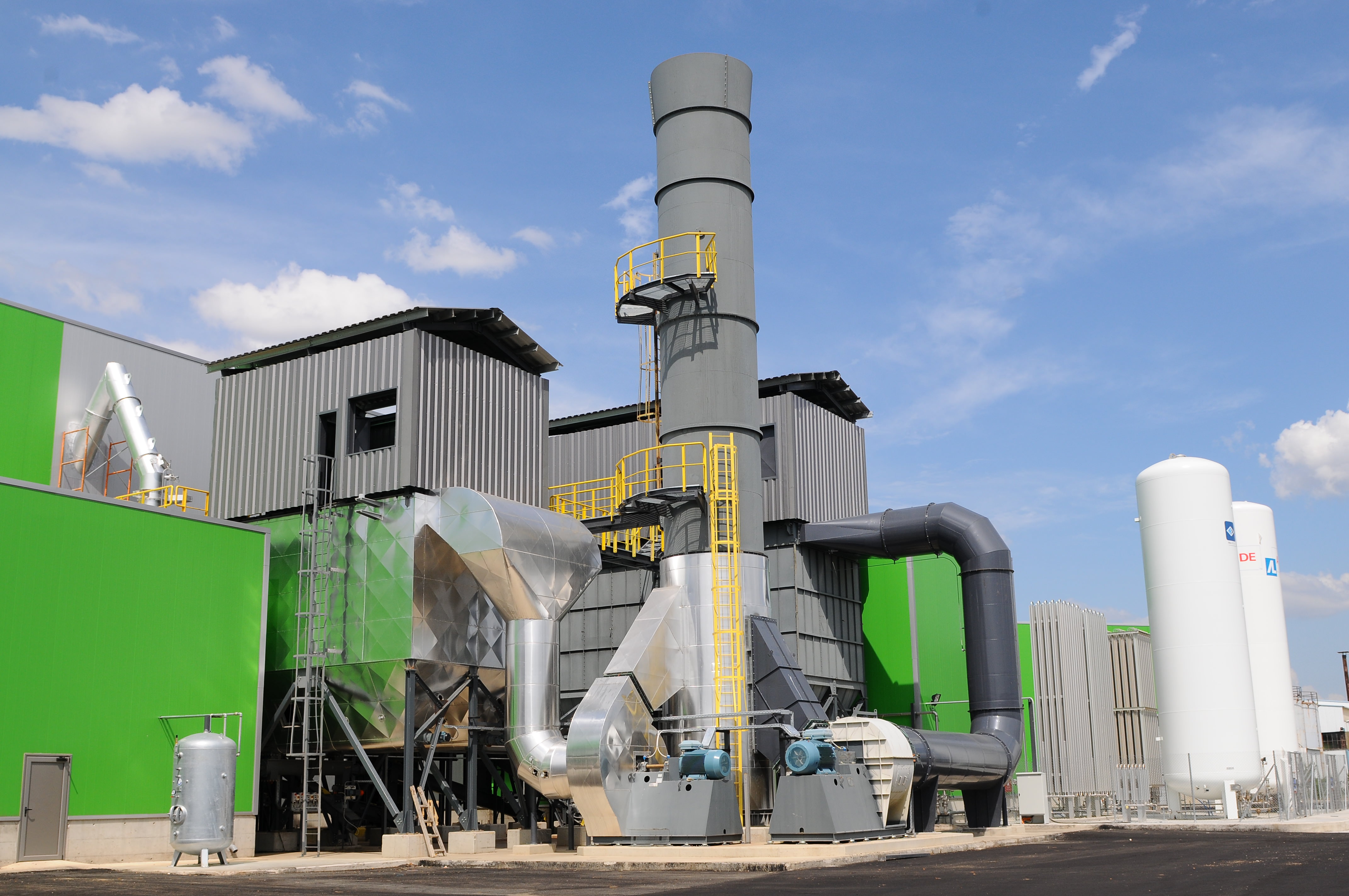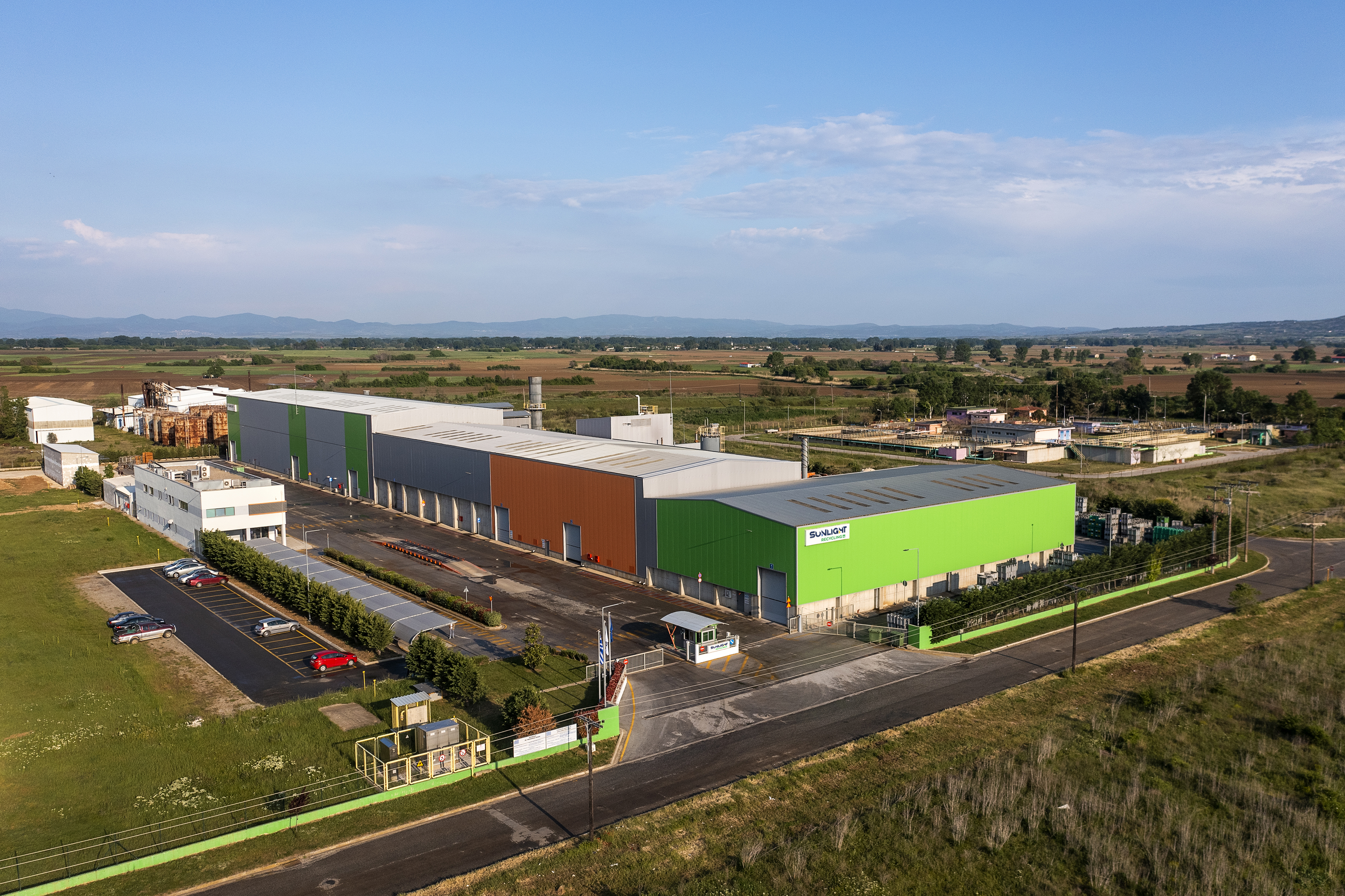Recycling Plant
The new plant, built in a plot area of 42,000m² in the Industrial Area of Komotini, has a recycling capacity of 50,000 tons of used lead-acid batteries per year, creating multiple financial and environmental benefits at local and national level.

The Plant
For its establishment, we strategically partnered with Engitec, a global leader in the engineering, procurement, construction and operation of recycling plants for lead-acid batteries. The collaboration has ensured unrivalled quality in the design and construction of the plant, installing of equipment, and recovered materials. The company’s expertise and cutting-edge methods was also critical in designing the optimal production process, using ensuring top environmental performance.

The Process
It is divided into twelve stages, each of which entails strict quality controls for ensuring the regular course of production while achieving maximum product quality & environmental performance. These stages include: receiving and storing used batteries; crushing them; sorting and desulfurization the materials; feeding the materials to the furnace; smelting them at 1,000°C; refining, ingot casting, and producing soft lead and lead alloys (99.99%).

The Products
We lead in lead-acid battery recycling, by applying sustainable practices to obtain three main products: raw lead, sodium sulfate, and polypropylene. The two byproducts of lead-acid batteries recycling and lead desulfurization, sodium sulfate and polypropylene, are handled responsibly and distributed to Greece and abroad. Most of the recycled lead is shipped to the industrial complex of our parent company, Sunlight Group, for the manufacturing of new batteries. In addition, ca. 25% of our revenue stems from global sales to external customers.
Emission-free sustainable recycling
Zero Liquid Discharge (ZLD) in the environment, by utilizing water closed-loop systems, and Zero discharge of electrolyte (acid) through the neutralization process of acid and its conversion into high-quality industrial salt (sodium sulphate).
Minimum air pollution, via advanced and specially designed air pollution control and abatement system that minimizes SO2 (Sulphur dioxide) emissions.
Minimization (<5%) of solid hazardous waste (slag), by implementing advanced waste management techniques to ensure environmental sustainability.
Elimination of lead emissions and ultimate metal recovery, achieved through the use of advanced air filtration systems for capturing dust.
Solid waste minimization, achieved by using the innovative technology of super desulphurization.
